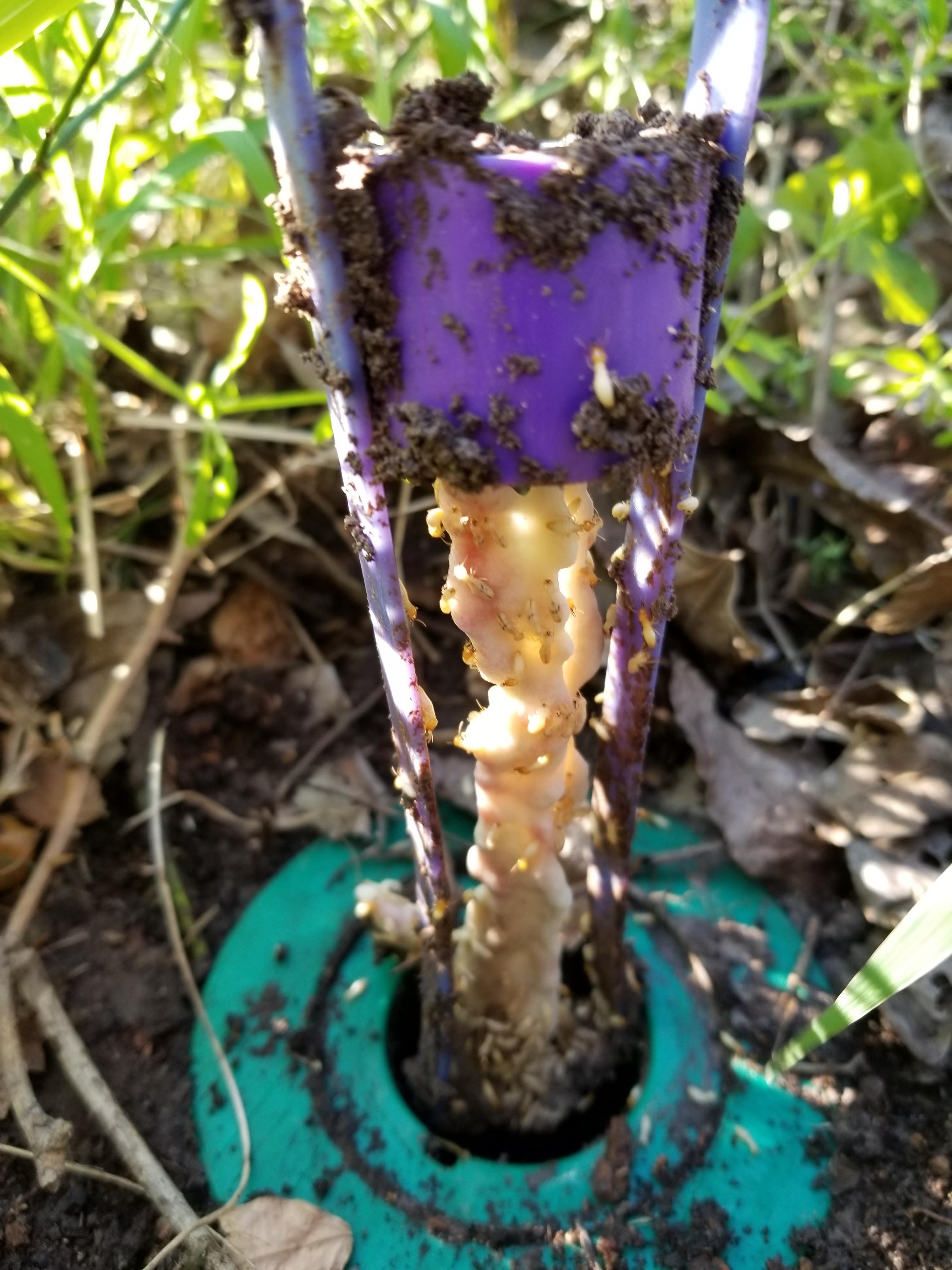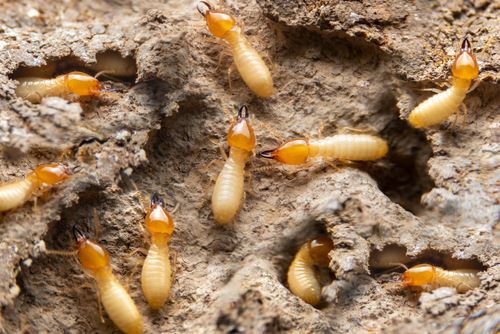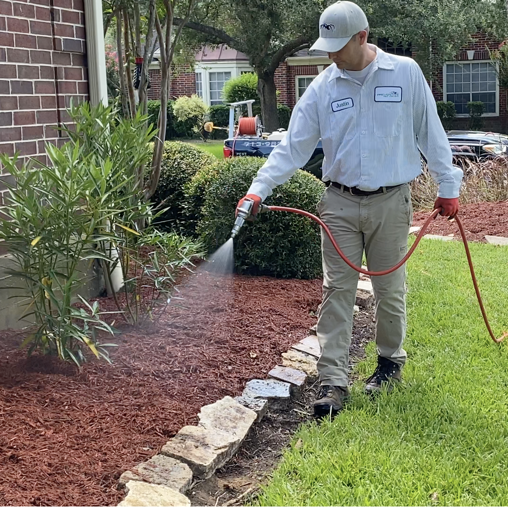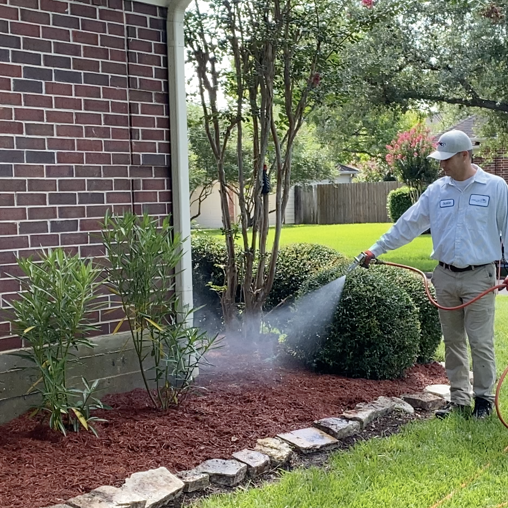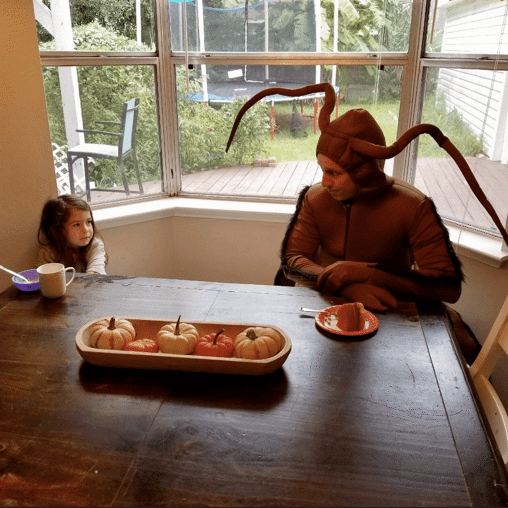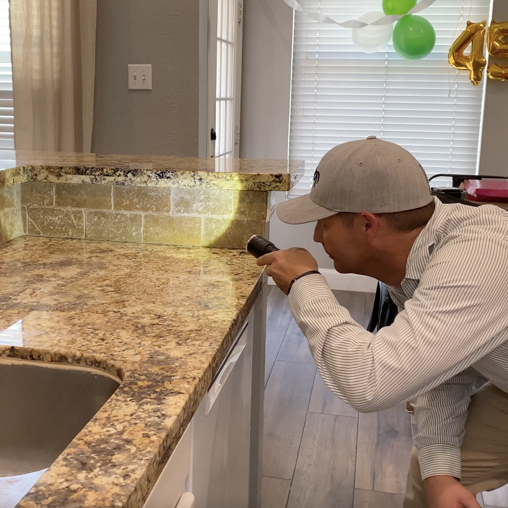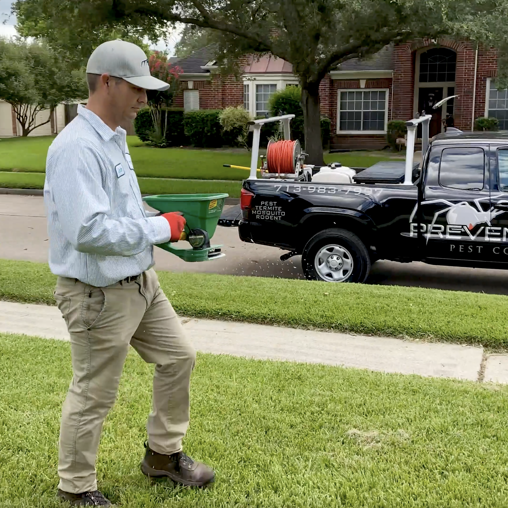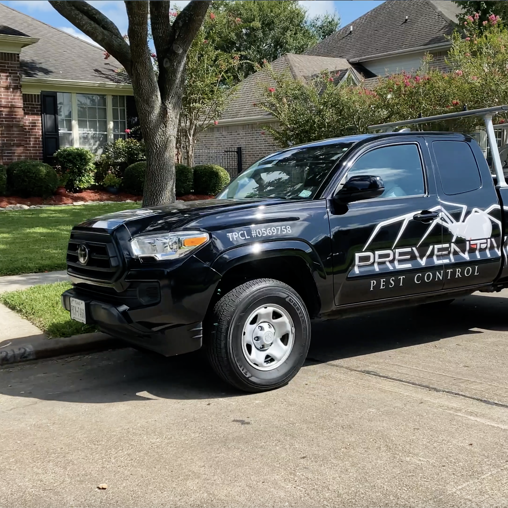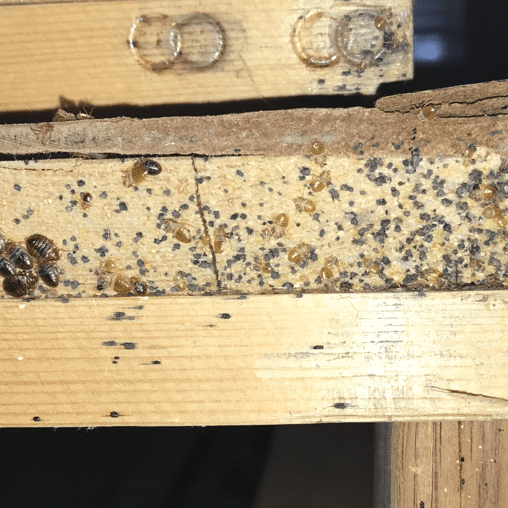
Houston Termite Control
Keeping Greater Houston Homes & Businesses Termite-Free
Unless you live in the middle of the Alaskan wilderness, where snow and ice cover the ground for well over half of the average year, there’s a good chance that there are termites underfoot. Termites are one of the most plentiful insects on the planet, and every year they infest a whopping five million homes.
When your home is your most important investment, the last thing you want to leave its protection to is guesswork. Nearly two decades and thousands of homes serviced later, we remain one of the most renowned and reliable names for termite control in Houston, TX. Customers know they can come to Preventive Pest Control when they demand results. We’ll ensure we get the job done right, so your peace of mind is entirely uncompromised.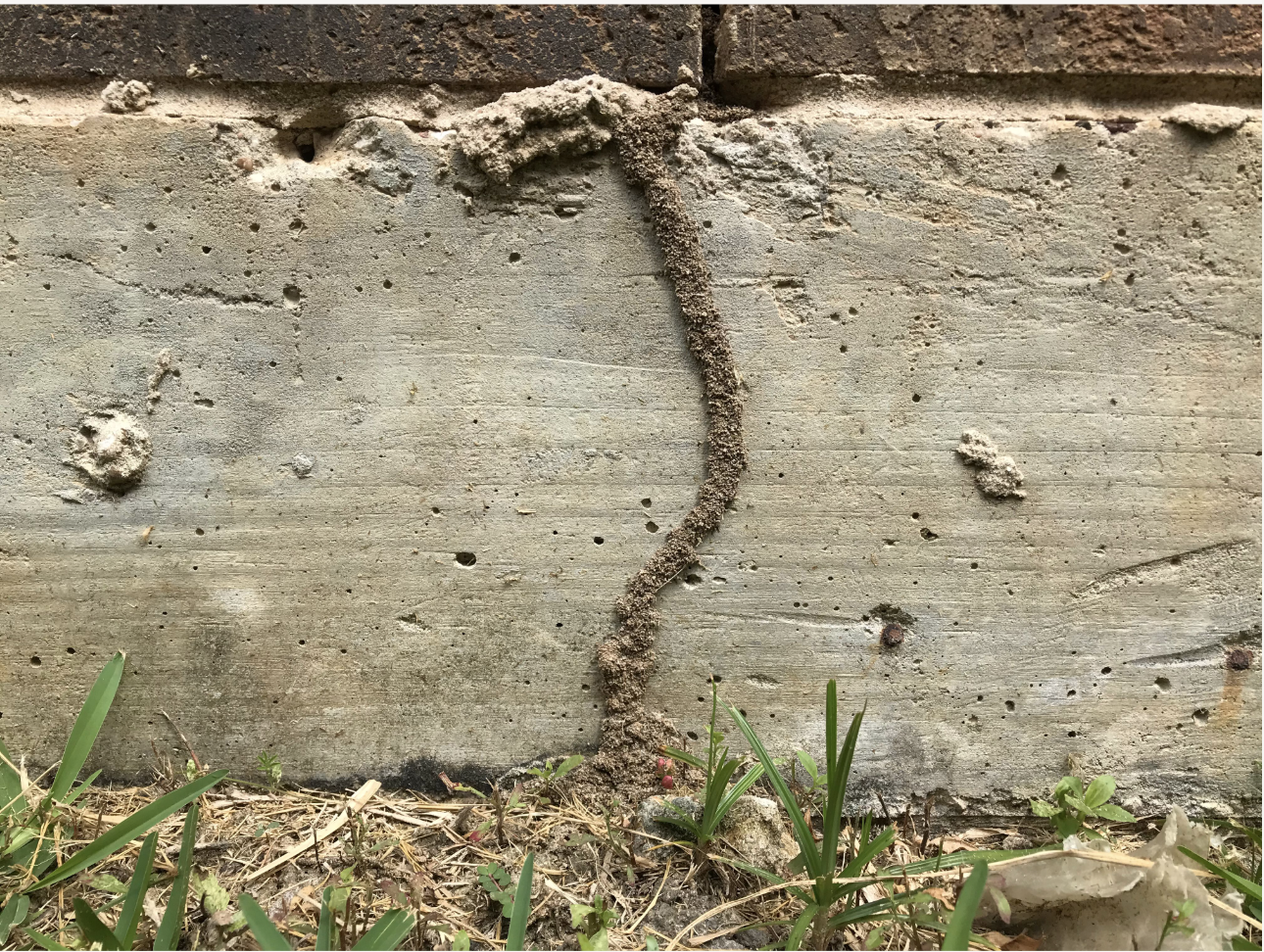
What are Termites?
Termites are destructive pests that pose a significant threat to homes and structures, including those in Houston. These insects are known for their ability to silently and steadily devour wood, causing extensive damage to buildings, furniture, and other wooden elements. Termites primarily feed on cellulose, a key component in wood, paper, and other plant materials.
By addressing potential termite issues before they escalate, Preventive Pest Control not only protects your property but also provides peace of mind. Timely intervention and effective preventive measures can save you from the headaches and expenses associated with termite damage. Trust in the expertise of pest control professionals to create a termite-free environment and preserve the structural integrity of your home in Houston.
More Information on Termites:
- Why Termites Invade Your Home
- The Worst-Case Scenario If Your Termite Infestation Is Not Treated
- Professional Termite Treatment vs. DIY Treatment
- Why Every Home Needs an Annual Termite Inspection
Call Preventive Pest Control at (713) 955-7405 today and we’ll help you get started on solving the problem!
PEST PACKAGES
Pest Protection For As Low As $40/Month
-
 BASICThe Preventive Pest Basic
BASICThe Preventive Pest BasicStarting at $40
WHAT'S INCLUDED:
- Quarterly Pest Control Visits Give Year-Round Pest Protection
- Includes 12+Pests - Indoor Spider control, American Roaches, Indoor Ants and More!
- Wasp Nest and Spider removal on each visit where accessible
- Any Issues With Covered Pets Between Visits, We Will Come Back and Treat Again!
- Year-Round Pest Protection
-
 PLUSThe Preventive Pest Plus*
PLUSThe Preventive Pest Plus*MOST POPULAR
FOR HOMEOWNERSWHAT'S INCLUDED:
- Quarterly Pest Control Visits Give Year Round Pest Protection
- Includes 12+ pests with Indoor Spider Control, American Roaches, Indoor Ants, Wasp Nest and Spider Removal Where Accessible
- Our PLUS PACKAGE Is Most Popular For Families That Like To Spend Time In Their Yard. This Package Includes All The Benefits of the Basic Package PLUS FIRE ANT CONTROL!
-
 PREMIUMThe Preventive Pest Premium
PREMIUMThe Preventive Pest PremiumBuild-Your-Own Pest Protection
WHAT'S INCLUDED:
- Basic Pest Control Package
- Bundle Other Pest Services With Your Basic Pest Package Such As:
- Fire Ant Control
- Mosquito Control
- Rodent Control
- Termite Control
- Exterior Flea
- Tick Control
- Whatever your pest issues are, Preventive Pest Control has the solution for you. Customize a Premium Pest Package to ensure your home is protected with a free inspection and quote from one of our Licensed Pest Inspectors.
How the Sentricon® Termite System Works
The Sentricon® termite system uses the instincts of termites against them. Unlike liquid protection systems that are extremely expensive and tedious to install (not to mention pretty short-lived), the Sentricon system provides long-lasting termite protection by actively eliminating colonies from the inside out. The Sentricon system consists of several strategically-placed stakes packed with termite bait that has been scientifically proven to be more attractive than actual wood.
The termite workers who collect this bait, thinking it’s a great meal, don’t know that they have just poisoned themselves and their entire colony with it. The bait has an undetectable termite poison passed from worker to worker as they continue to forage and search for more food. Eventually, the workers die, but not before giving the bait to several others. Eventually, the workers all die out, and a colony’s food source fails.
Once the food source dies out, so does the colony. However, the process is also expedited by the workers who bring the bait back to the territory—the poison in the bait passes from termite to termite like wildfire, quickly eliminating thousands and thousands of these bugs underground. As a result, they never reach your home, and you’re left safe and protected.
Take control of your termite infestation now. Contact Preventive Pest Control today for fast and effective termite control in Houston!
-
“I knew I had made the right choice”
“The service was very professional and the technician was on time responsive to every question that I ask. And the phone service put me at ease and very patient with my questions and concerns I knew I had made the right choice”- Myranda G. -
“Thanks for helping our family keep the raccoons from causing anymore destruction.”
“Very Polite and educated on the issue at hand. I am beyond terrified of anything that creeps and crawls especially in my attic. You were both calm, cool, and collective while I was ready to bolt out my front door.”- H&P -
“And the price was very reasonable. I definitely 100% recommend them!”
“It was a great experience having preventive pest control come out. They were very thorough and answered all of my questions!”- L.R.H. -
“I recommend this company because their prices are low and their service is excellent.”
I'm giving this five stars, for two reasons; 1. The staff you speak to on the phone are incredibly polite! If you have a problem, they will listen and do their 100% best to solve it. 2. When I had my initial service done, I felt, at the time, that it was not to my expectations. Immediately I called the customer service folks. The very next day they sent out a manager to come fix any concerns I had. I recommend this company because their prices are low and their service is excellent.- John A. -
“He not only took care of all the beds, he followed the ant trail all the way to the back of the preserve and knocked those suckers out!”
“He not only took care of all the beds, he followed the ant trail all the way to the back of the preserve and knocked those suckers out!”- Elisabeth S. -
“They give feedback and what solution would be for your home. Totally recommend”
“They knocked them out quick. They listen to you. They give feedback and what solution would be for your home. Totally recommend”- Surgical Tech -
“Thorough and highly recommended.”
“We’ve been a customer for seven years now, never had an issue! Even if they’re only doing an exterior service, they are thorough.”- Angela D. -
“Excellent, professional service.”
“Excellent service in the most professional manner....from the office to the techs that come out to my home. You will not be disappointed.”- Kay G.

